The 31st Tour de France (held between 30th June and 25th July 1937) was the first race for the new director Jacques Goddet. Since the beginning in 1903, Henri Desgrange, the “founding father of Tour de France” was the race director, now he has retired. He still visited the race frequently untill his death in 1940.
The Tour de France in 1937 has not the best reputation. Actually, it was marred by scandals. The rules were changed, while the race was underway and they favoured the French team. No wonder, that the Belgian team, including the defending champion and the current man in the yellow, Sylvére Maes left the race.
The 31th Tour de France was won by the Roger Lapébie, the rider, who wasn’t invited in the French national team for years, because of his personal conflict with Henri Desgrange.
MORE TOUR DE FRANCE FROM THE 1930S
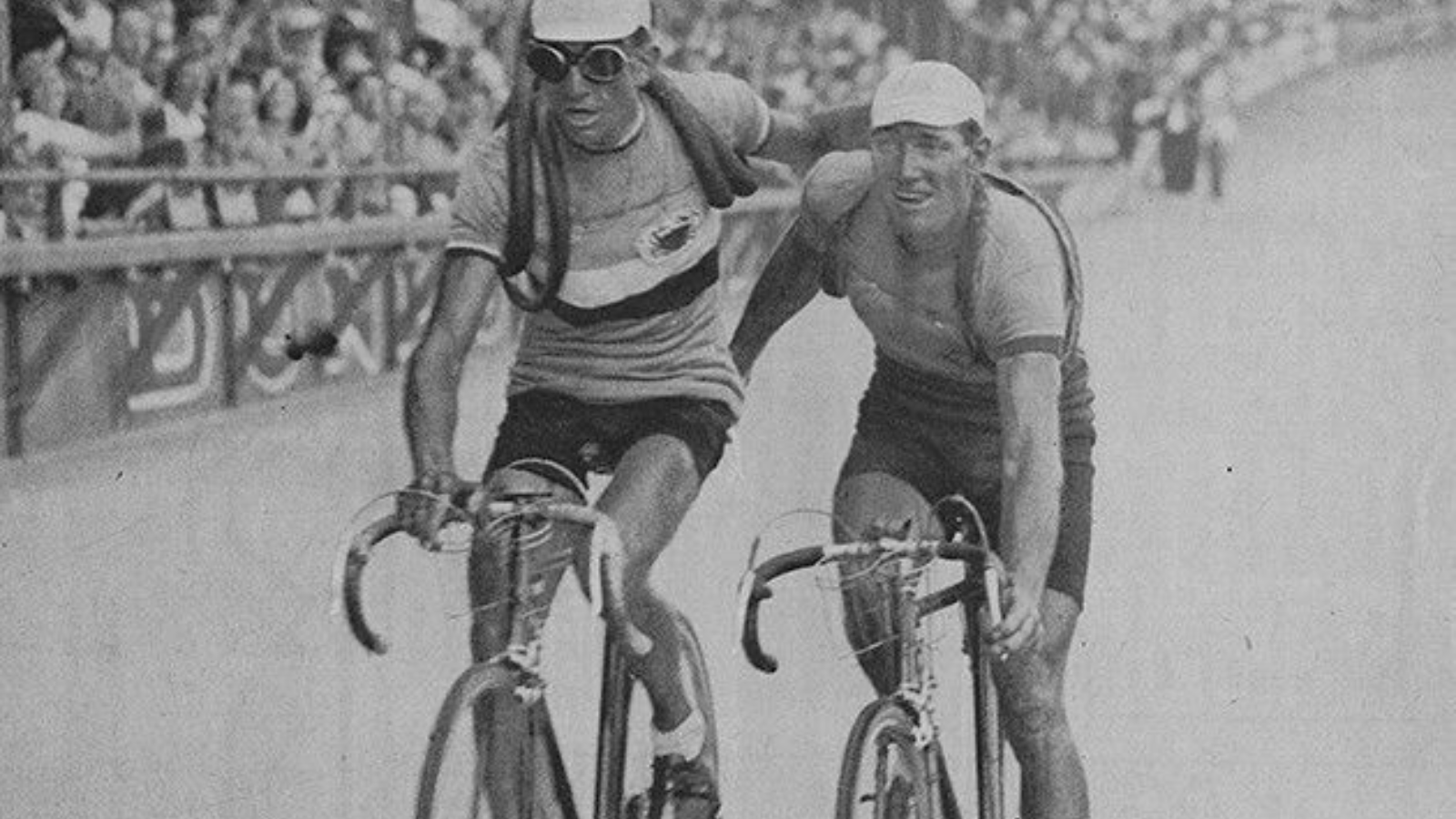
André Leducq and Antonin Magne crossing the finish line together (Tour de France 1938)
Before Greg LeMond and Bernard Hinault on the top of Alpe d’Huez, there were André Leducq and Antonin Magne in Paris. Two dominant French riders from the first part of the 1930s, both Leducq (1930 and 1932) and Magne (1931 and 1934) won the Tour de France twice. In the very last stage of Tour … Read more
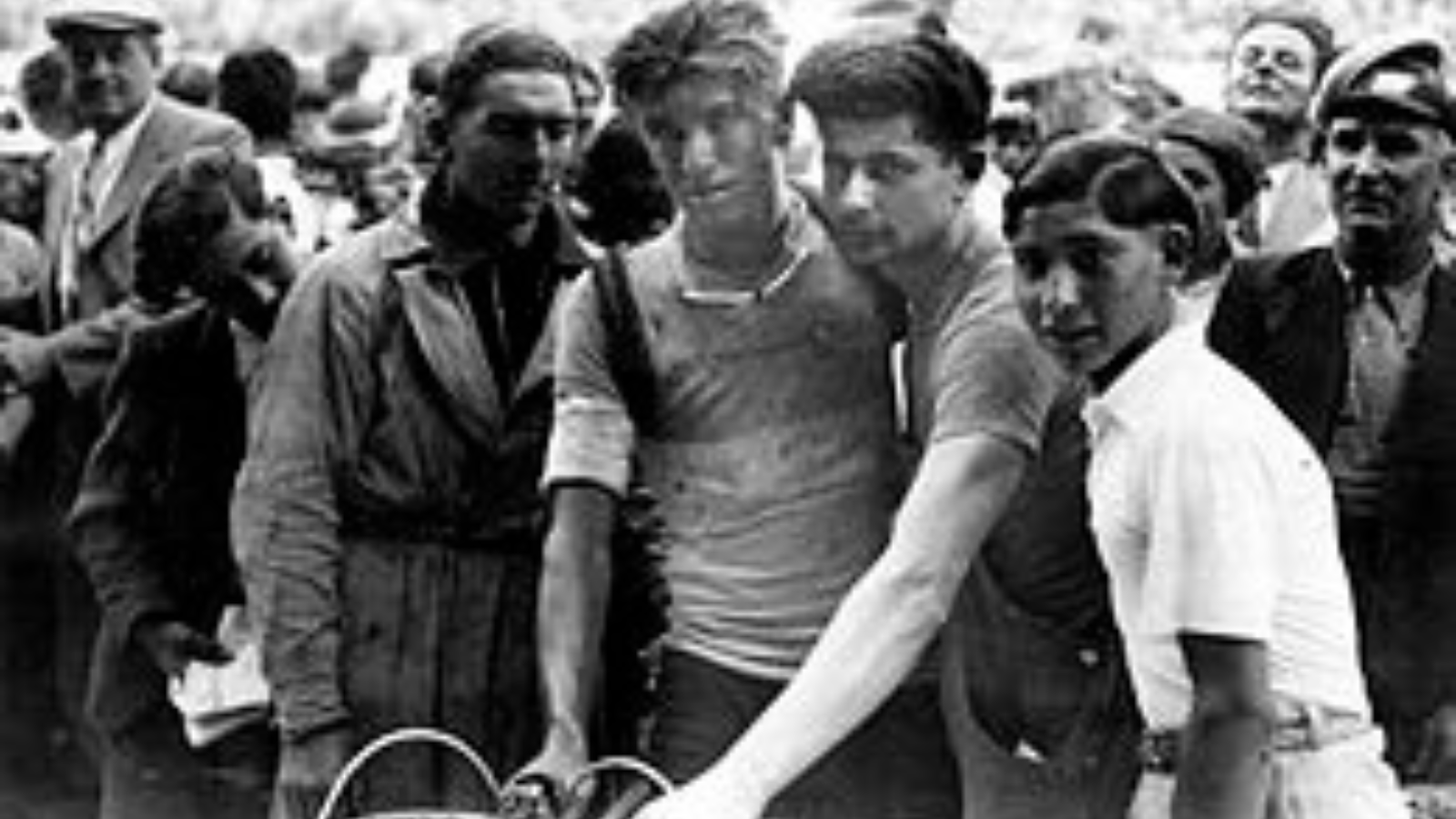
Faces from the Peloton: Theo Middelkamp (1914-2005)
You would never guess in what kind of stage the first Dutch Tour de France stage winner, Theo (Theofiel) Middelkamp (1914-2005) gained his victory. In a mountain stage in the Alps, including Télégraphe, Galibier and Lautaret. Considering that even in the early 1950s, when Wim van Est, the first Dutch cyclist to wear the yellow … Read more
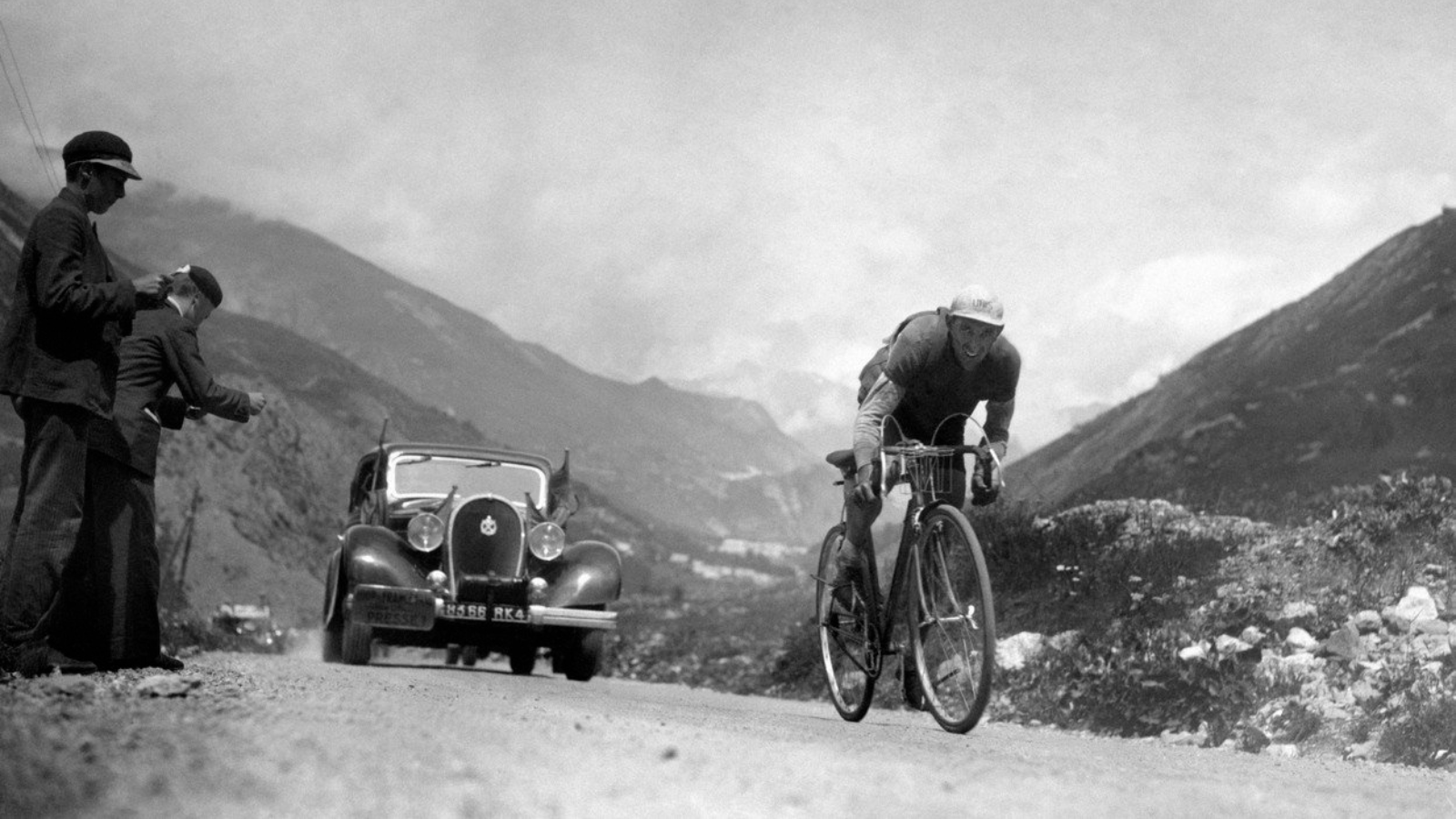
Fédérico Ezquerra on the Galibier (Tour de France 1936)
Col du Galibier was part of the 7th stage alongside with Thélégraphe and Lautaret at the Tour de France in 1936. (Usually, when the peloton climbs Galibier, they climb also Thélégraphe and Lautaret.) The 230 km long stage ended in Grenoble (hilltop finishes were introduced to Tour de France only in 1952), and a whole … Read more
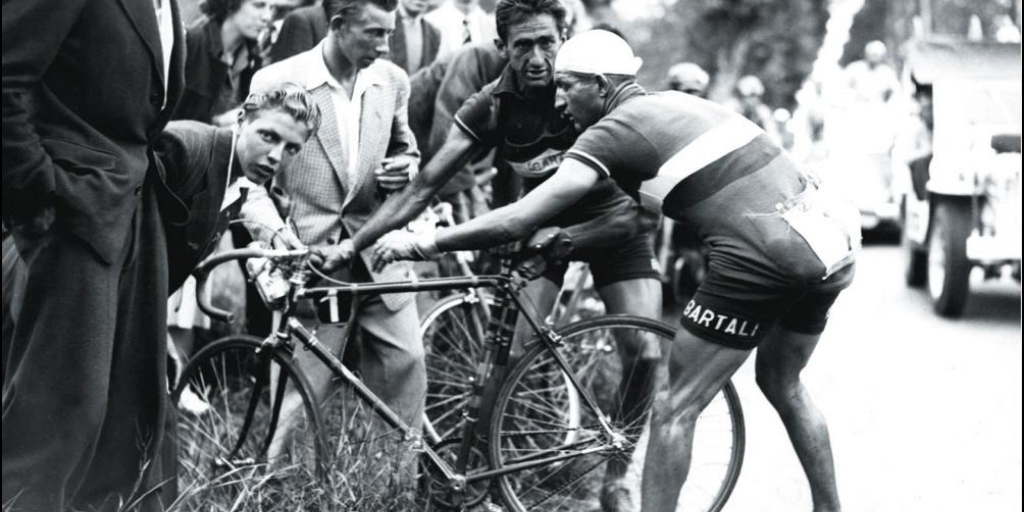
Four scandalous Tour de France editions
In its more than 120-year-long history Tour de France, the most famous road cycling race of the world witnessed good time and bad time either. It had plenty of glourious moments, but also some shameful ones. Here are the four (arguably) most scandalous editions in the history of Tour de France . 1904 – an … Read more
Felicien Vervaecke’s bad luck (Tour de France 1936)
A Tour de France stage in the Pyrenees (especially, when it includes the big four, Peyresourde, Auspin, Aubisque and Tourmalet) always provides stories to tell. Belgian rider Felicien Vervaecke won the mountain competition of Tour de France twice, in 1935 and 1937. Before the 16th stage (Peyresourde, Tourmalet, Aspin, Aubisque) in 1936, he was 4 … Read more
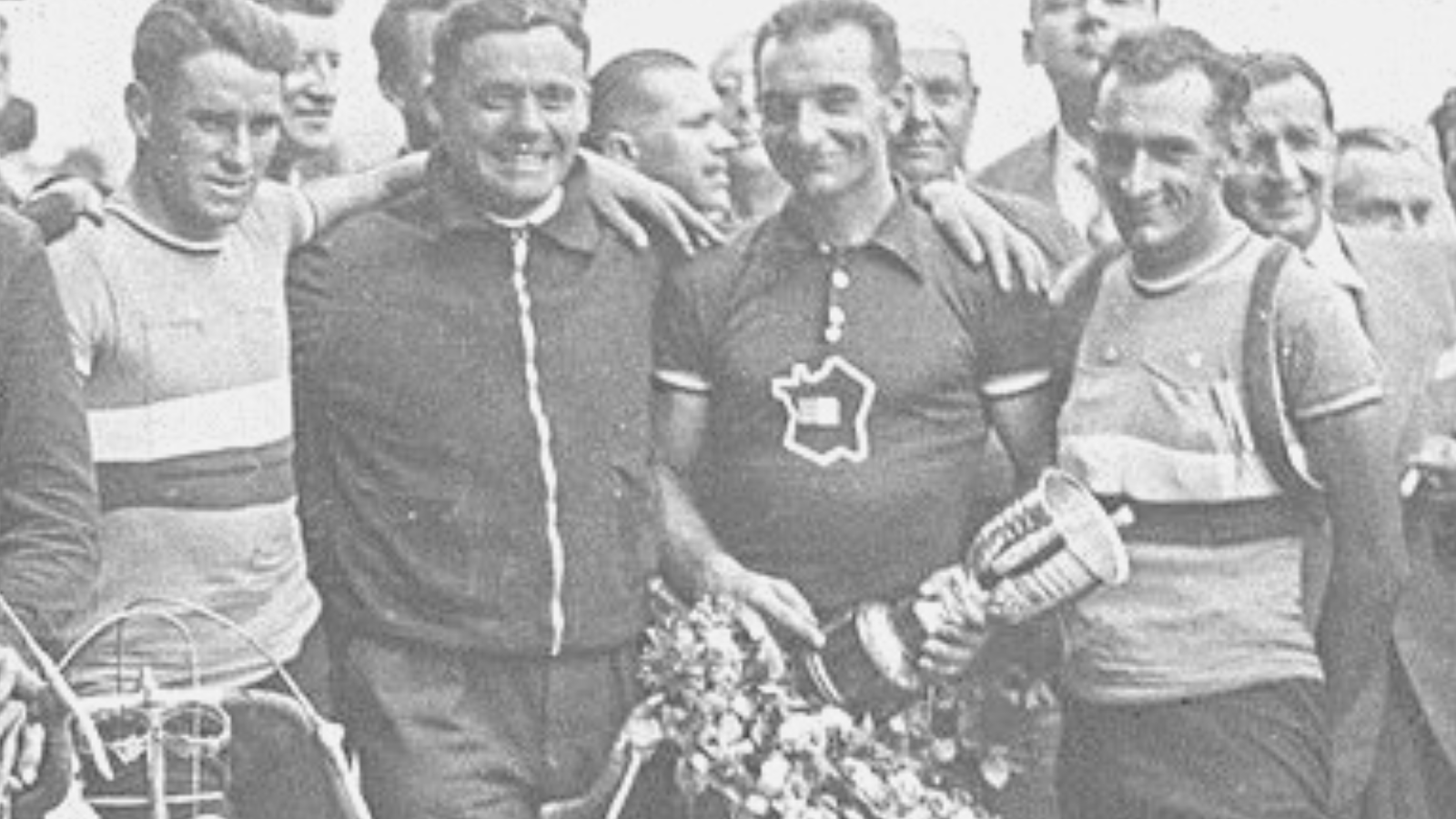
25 July 1937 Roger Lapébie wins the Tour de France
The 31st Tour de France (held between 30th June and 25th July 1937) was the first race for the new director Jacques Goddet. Since the beginning in 1903, Henri Desgrange, the “founding father of Tour de France” was the race director, now he has retired. He still visited the race frequently untill his death in … Read more
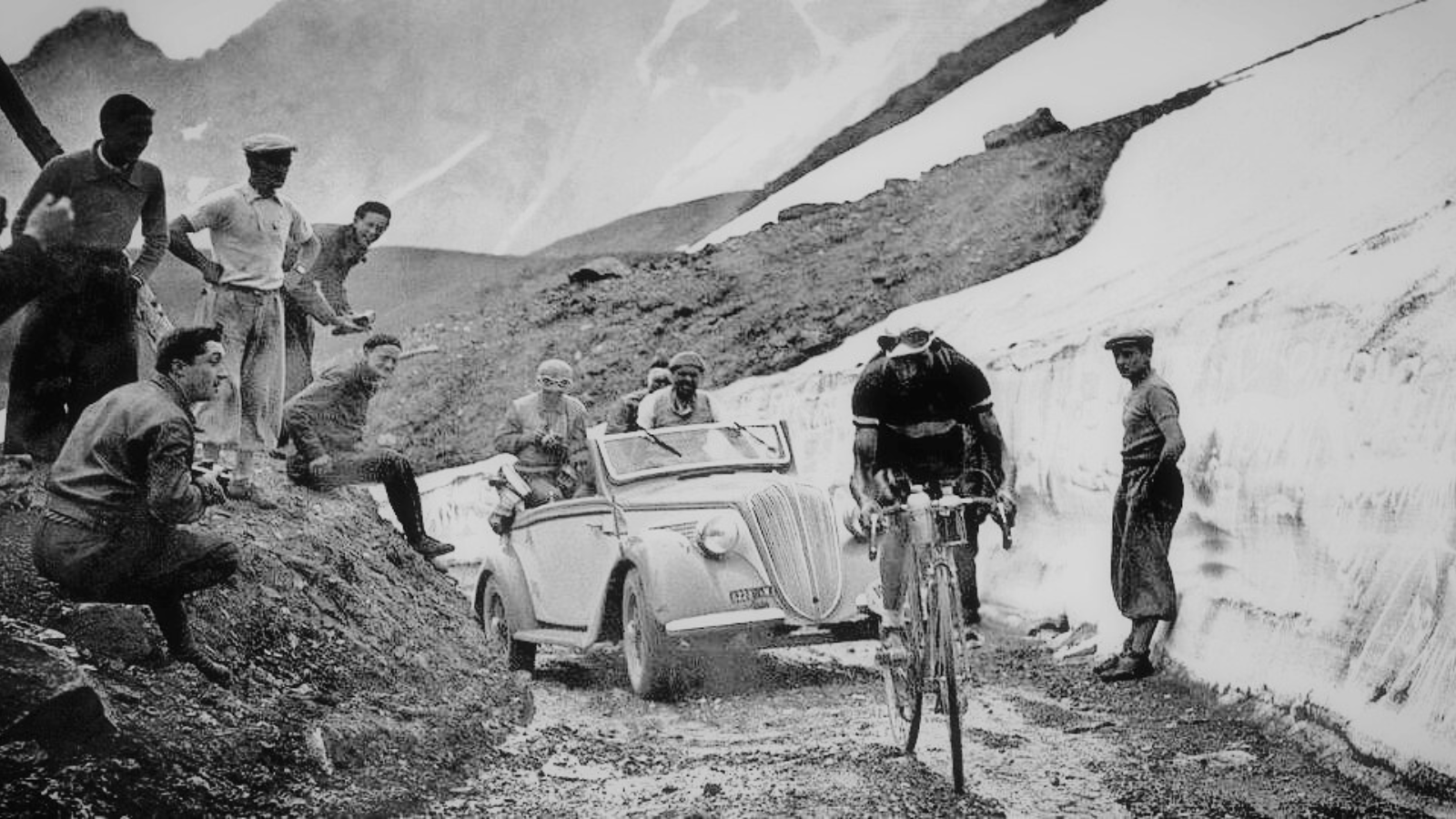
7 July 1937 Gino Bartali takes the yellow jersey for the very first time
Gino Bartali was already a two-time Giro d’Italia winner (1936 and 1937) when he first entered Tour de France in the summer of 1937.The years before World War II witnessed the growing political-military tension in Europe. In 1936, the year when Germany violated the Treaty of Versailles (1919) by sending troops into the demilitarized Rhineland, … Read more